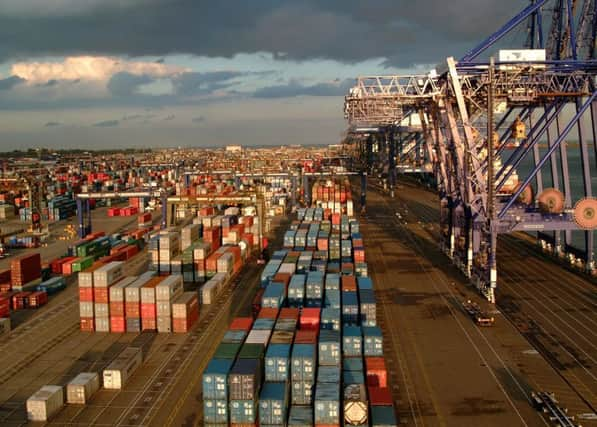Business activity rises solidly in June


Despite steady levels of activity in June, as opposed to subdued rates of expansion in May, economist Richard Ramsey said future performance was closely tied to the impact of Brexit on the UK as a whole.
Data from the latest Ulster Bank Northern Ireland PMI report indicates that growth was maintained at the end of the second quarter, with sharper expansions of output, new orders and employment recorded.
Advertisement
Hide AdAdvertisement
Hide Ad“Following the referendum result, the business community has entered a new era of uncertainty,” said Mr Ramsey, chief economist for Northern Ireland with the Ulster Bank.
“This has already had an impact on investment intentions. Given that Northern Ireland shares a land-border with the EU, the referendum result will most likely have even greater economic significance for us.
“It is also worth noting that the majority of survey responses were received prior to the UK referendum result. Since then, economists have slashed their growth forecasts for the UK economy.
“The consensus opinion is for marginal rates of growth next year, with an increasing number of economists expecting the UK economy to enter recession.
Advertisement
Hide AdAdvertisement
Hide Ad“Given its reliance on GB, Northern Ireland would be very likely to follow suit.
Stating that employment was the most positive aspect of the latest survey, he said private sector firms reported a pick-up in hiring in June, with the rate of job creation the fastest of all the UK regions.
“All sectors increased their staffing levels in June and retail continues to generate the fastest rate of employment growth.
“Manufacturing firms reported a strong rebound in job creation following a sustained period of job losses.
Advertisement
Hide AdAdvertisement
Hide Ad“This follows a marked reversal in fortunes for manufacturing output and orders, with the former hitting a 20-month high. No doubt the exchange rate is providing a much needed boost.”
Of more concern was the slowdown in service sector employment growth which slowed in June to a 12-month low.
For the next period he said what happens to Single Market access would be closely watched by the manufacturing, agriculture and hospitality sectors in particular.
“The most notable reaction to date has been the sharp fall in Sterling. The pound recently hit a 31-year low against the dollar and has depreciated by 10% against the euro,” he said.
Advertisement
Hide AdAdvertisement
Hide Ad“While this will impact negatively on consumer price inflation and the cost of imports, it also has some advantages. Manufacturing export price competitiveness has increased, and so too has the cost competitiveness of US service sector firms operating in Northern Ireland.
“Our tourism offering is also more attractive in both European and North American markets.
“Meanwhile our retailers, particularly those in border areas can expect an influx of shoppers from the Republic of Ireland.”